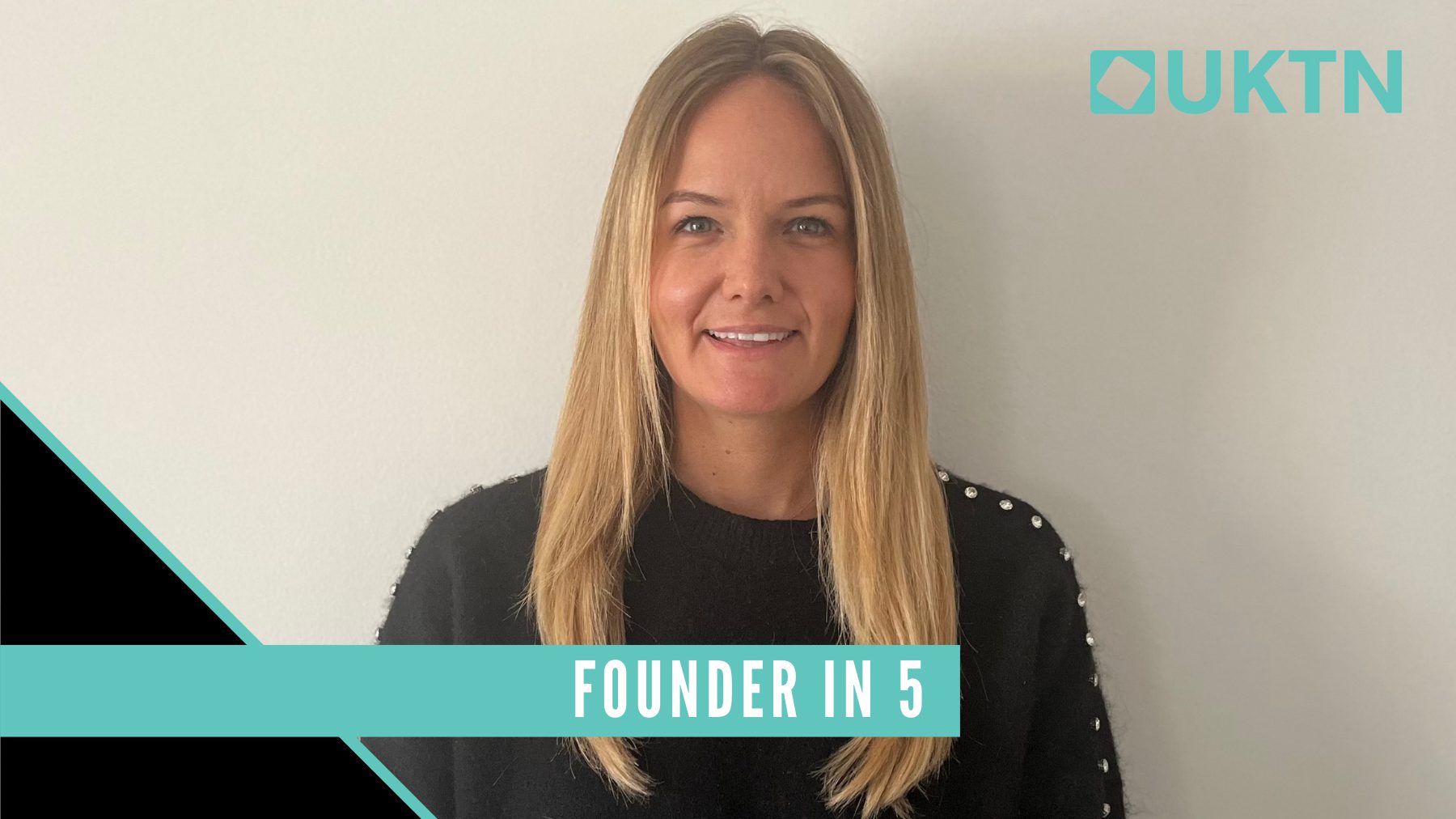
Katherine Stennett is the co-founder of Myota, a startup using artificial intelligence to develop precision fibre supplements aimed at improving gut health.
Stennett, who has previously worked at insurtech Zego and digital healthcare provider Kry, founded Myota in 2019 with PhD computational biologist Thomas Gurry.
Its fibre blends seek to improve the quantity and diversity of gut bacteria energy levels and reduce gut inflammation.
The startup’s app lets patients track their symptoms – including mood, energy levels, stool consistency – and simulate the change in data points over time.
Myota is partnering with healthcare professionals and health services, including the NHS, to further explore the potential impact of fibre on chronic health conditions, such as Type 2 Diabetes, IBS, and arthritis.
In this week’s Founder in Five Q&A, Stennett reveals her health tips for avoiding burnout, explains why she’s inspired by the co-founder of Headspace and why she’s excited about the future of wearables.
1. What was the most important early hire you made?
Katherine Stennett: Very early on we brought Dr Caitlin Hall into the team as our chief dietitian and head of clinical research. Alongside her master’s degree in dietetics, Caitlin holds a PhD in neuroscience and gut microbiology and is an experienced research practitioner.
Her expertise and fascination with the gut-brain axis has proven hugely valuable to the development and testing of Myota’s fibre mixes, as well as in the design and implementation of our own microbiome research projects.
2. Who’s a leader you admire in your industry?
KS: A fellow British founder in the digital health space, Andy Puddicome (co-founder of Headspace, a mental wellbeing app) is an inspiring leader running a brilliant company. Inspired by his own experiences as a Buddhist monk, he has built and scaled a digital platform that has helped millions of people access the benefits of meditation and mindfulness in a way that is both affordable and compatible with the frenetic pace of modern life.
His evidence-backed approach to wellbeing tech and his wholehearted belief in his product is reflected in my own experience as a leader at Myota.
3. What’s a fact about yourself that people might find surprising?
KS: Prior to Myota, I founded one of London’s first on-demand grocery delivery services. This was my first foray into the world of tech startups, and it taught me a great deal about bootstrapping, what’s involved in taking an idea from concept to reality and also the benefits of failure.
Directly before that, I worked both in the music industry and investment banking, so I am a big believer in pursuing things that interest you, rather than a strict career path
4. How do you prevent burnout?
KS: Paying close attention to my own mental and physical health is a key priority for me – but of course this is easier said than done! I generally find that if I maintain a varied, high-fibre diet, sleep properly, and get enough exercise then I can find plenty of energy and enthusiasm to devote to my work.
Having a good support network around you (in and out of the office) is essential: people who can remind you to take a break when you need one, and those who can inject fun into the process of building a business.
5. Which nascent technology holds the most promise?
KS: Huge amounts of data have been gathered on the composition of the human microbiome (the good bacteria living in our gut), and, very recently, AI technology has been used to analyse this data and convert it into knowledge and insights.
In parallel, there are many wearable technologies being developed for continuous health monitoring, which allows us to understand the impact of specific interventions in real time. Combined with AI, this is making it possible not only to develop personalised gut health products like Myota, but also to build personalised biomedical products and therapeutics.
Founder in Five – a UKTN Q&A series with the entrepreneurs behind the UK’s innovative startups, scaleups, unicorns and public tech companies – is published every Friday.



